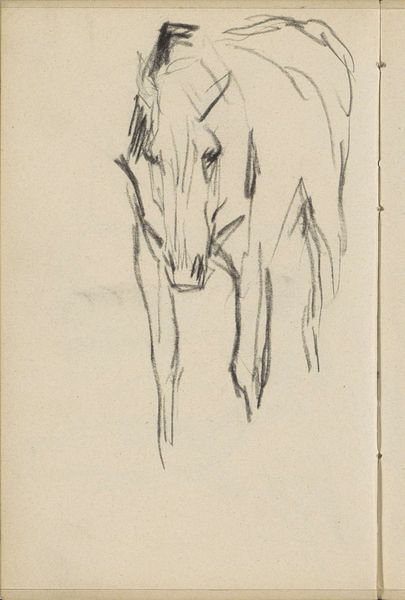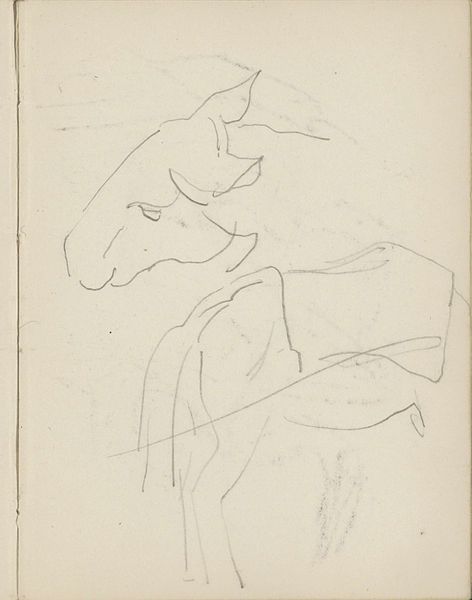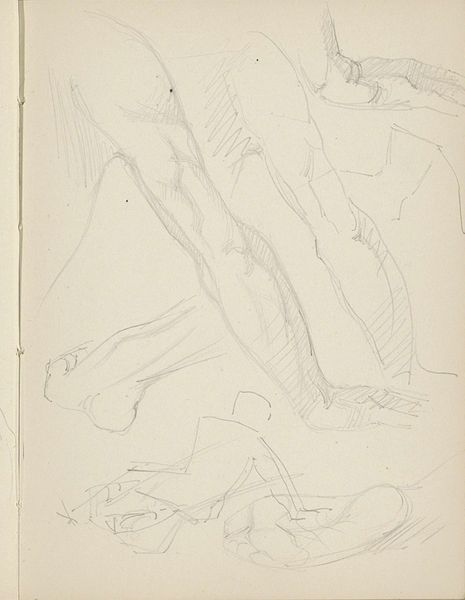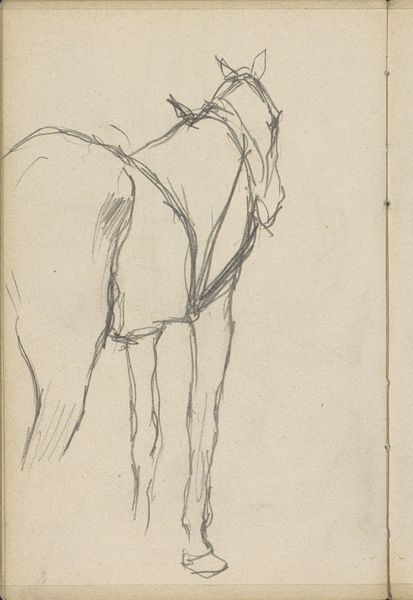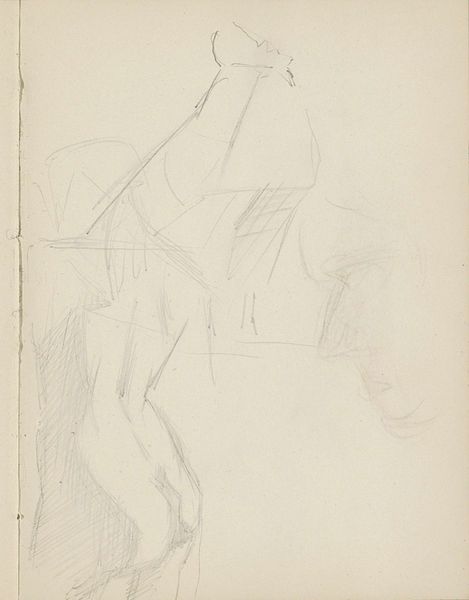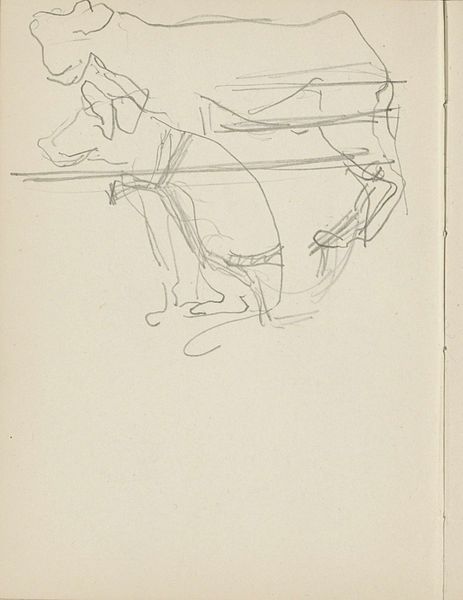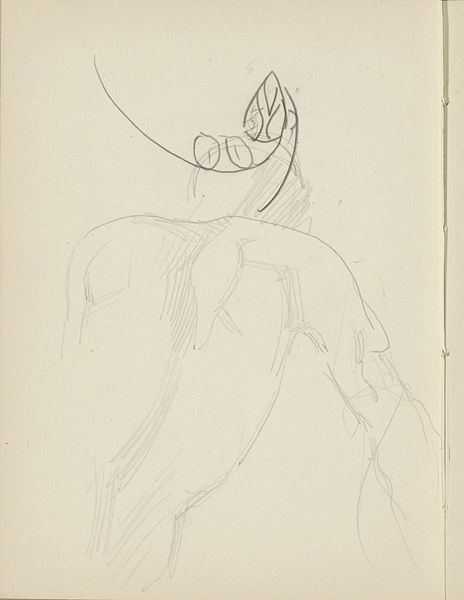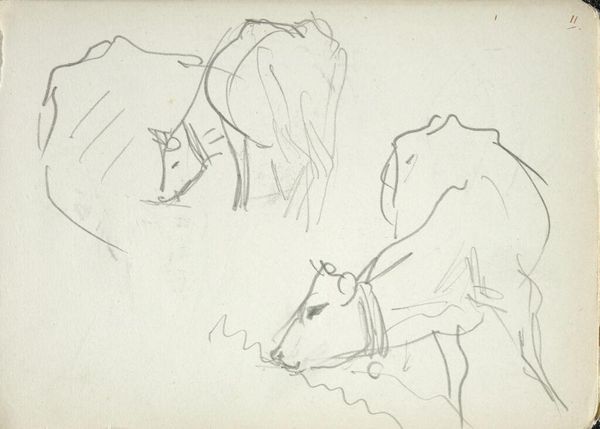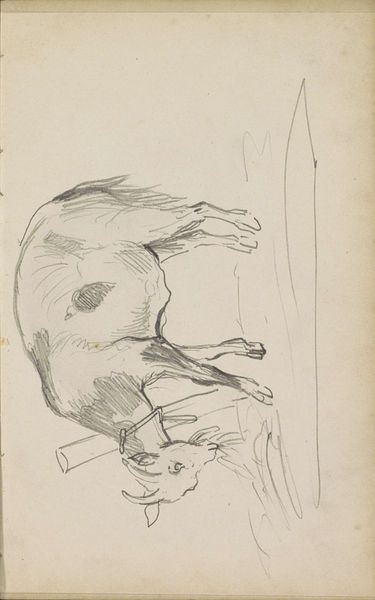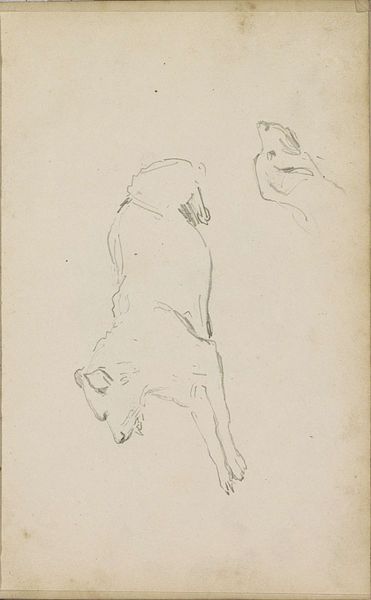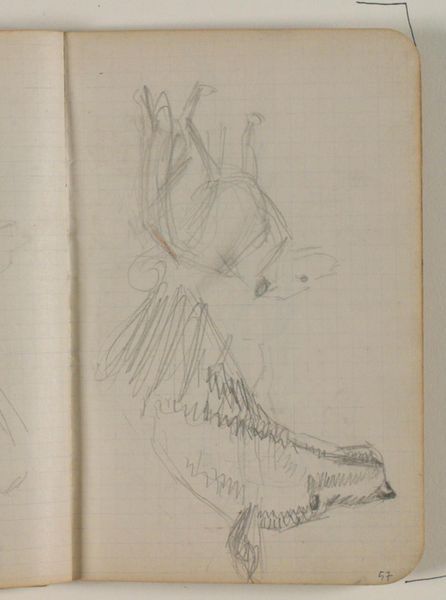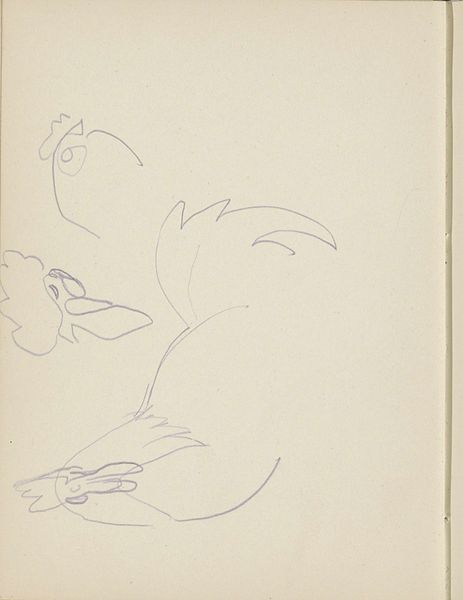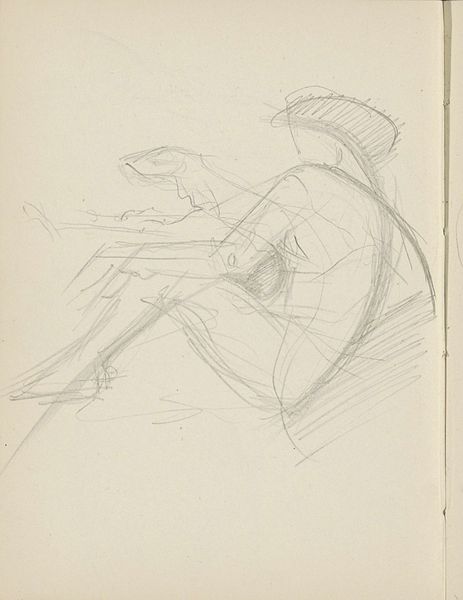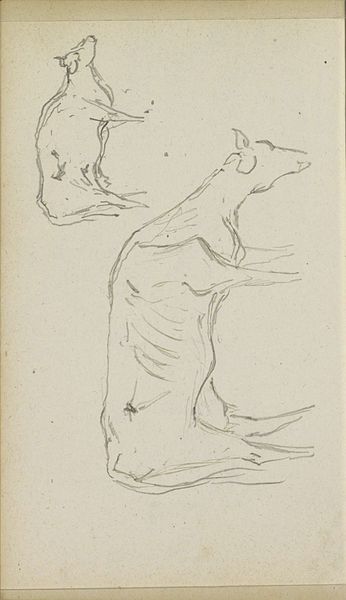
drawing, paper, pencil
#
drawing
#
amateur sketch
#
light pencil work
#
pencil sketch
#
incomplete sketchy
#
landscape
#
figuration
#
paper
#
personal sketchbook
#
idea generation sketch
#
ink drawing experimentation
#
pen-ink sketch
#
pencil
#
line
#
sketchbook drawing
#
initial sketch
Copyright: Rijks Museum: Open Domain
Editor: Here we have "Ezel," which translates to "Donkey," a pencil drawing made sometime between 1906 and 1945. It's just a quick sketch, and it feels so ephemeral. What's your take on it? Curator: I see a study in labor, even in its incomplete form. The medium itself, pencil on paper, suggests accessibility and the everyday nature of the artistic process. Consider the social context: this was a working animal. Editor: A donkey… So you are saying this is about the *idea* of the work done by the animal rather than the final artwork itself? Curator: Precisely. This is less about idealizing the animal and more about the raw materials used to depict labor. The choice of inexpensive materials reflects perhaps the donkey’s, and therefore by extension the worker’s, accessibility and disposability within the economic machine. How does this piece challenge our perception of artistic skill and value? Editor: That’s a perspective I hadn’t considered. I was caught up in the sketchiness and hadn’t thought about the materials themselves as a commentary. So, is the act of sketching, the process, elevated by the subject's own inherent involvement with the act of labor itself? Curator: Exactly! Think of the relationship between the hand holding the pencil, depicting labor, and the donkey performing labor. Editor: I'm walking away thinking about the subtle statement this work makes, about making and working. I am going to be thinking more about that in relation to the finality of work I consider from now on! Curator: Agreed. This raw sketch, with its unassuming materials, invites us to think critically about artistic creation.
Comments
No comments
Be the first to comment and join the conversation on the ultimate creative platform.
